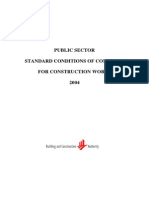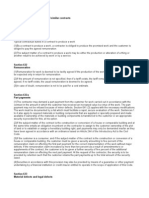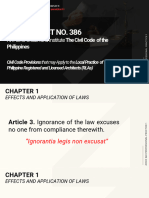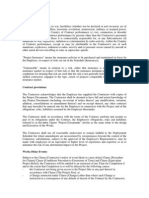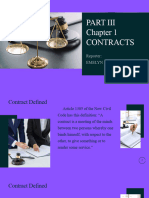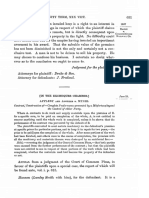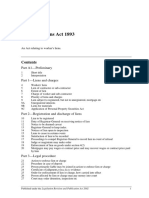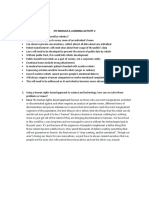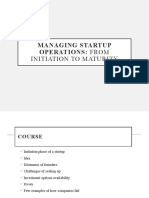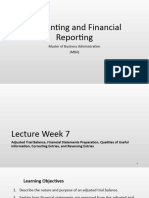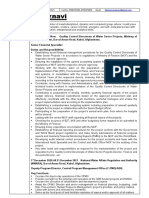0% found this document useful (0 votes)
73 views19 pagesCivil Code
The document outlines key provisions for contracts for a piece of work from the Civil Code of the Philippines. It defines the contract and obligations of contractors, including properly executing the work, using suitable materials, liability for defects, compensation and payment terms, liability for injuries to laborers, and an owner's ability to withdraw from the contract. Contractors are responsible for their work and any deaths or injuries that occur during construction.
Uploaded by
Chanty LenchicoCopyright
© © All Rights Reserved
We take content rights seriously. If you suspect this is your content, claim it here.
Available Formats
Download as PPTX, PDF, TXT or read online on Scribd
0% found this document useful (0 votes)
73 views19 pagesCivil Code
The document outlines key provisions for contracts for a piece of work from the Civil Code of the Philippines. It defines the contract and obligations of contractors, including properly executing the work, using suitable materials, liability for defects, compensation and payment terms, liability for injuries to laborers, and an owner's ability to withdraw from the contract. Contractors are responsible for their work and any deaths or injuries that occur during construction.
Uploaded by
Chanty LenchicoCopyright
© © All Rights Reserved
We take content rights seriously. If you suspect this is your content, claim it here.
Available Formats
Download as PPTX, PDF, TXT or read online on Scribd
/ 19




